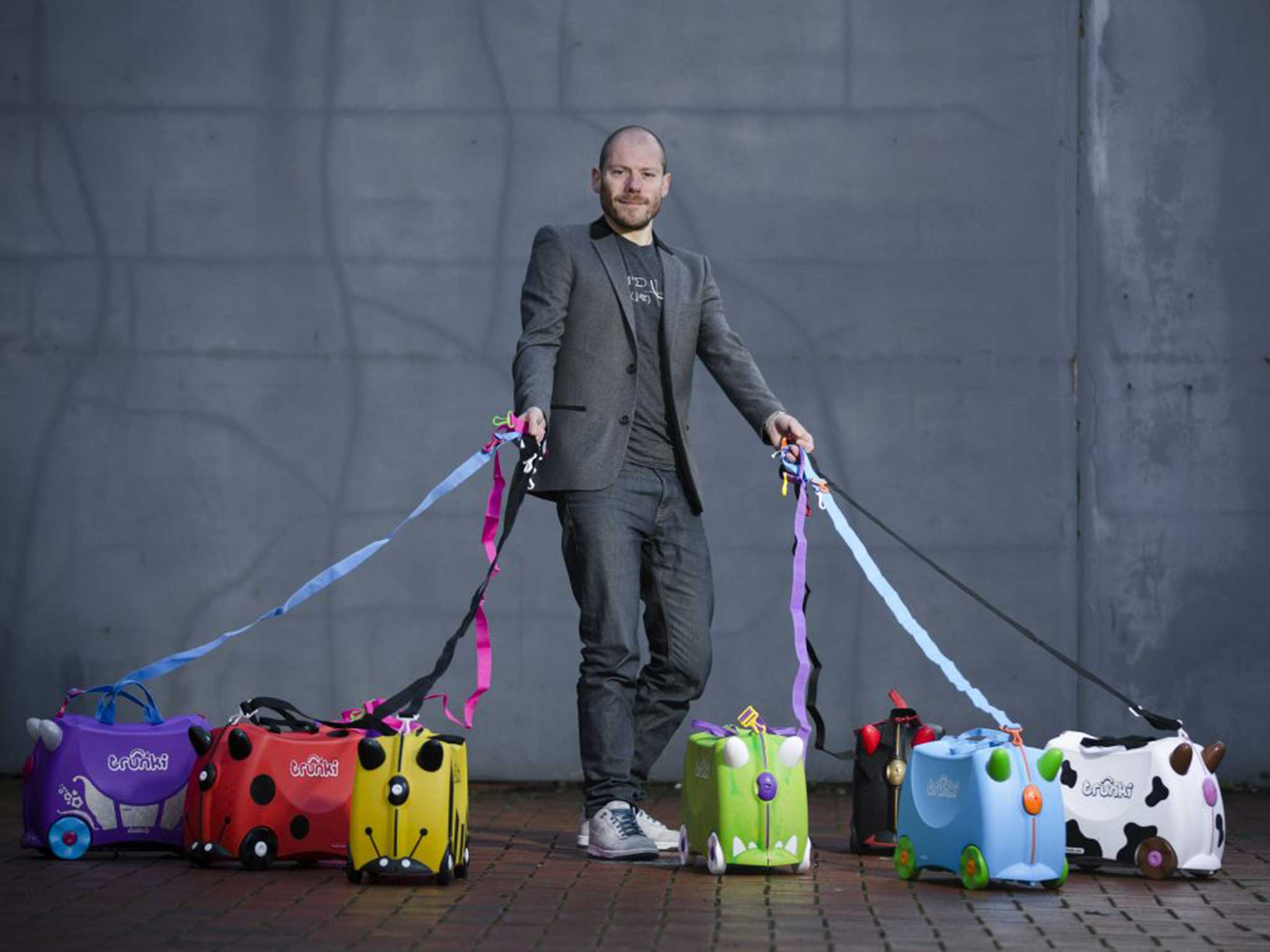David Prosser's Small Talk: Pity poor Trunki, losing out because of our intellectual property laws
'You can see why Law will be feeling let down. A rival company with an imitation idea is able to substantially undercut him on price'

Rob Law, the entrepreneur who developed the Trunki range of ride-on luggage for children, is used to the odd setback. When he appeared on the BBC’s Dragons’ Den programme 10 years ago, one of the dragons, Theo Paphitis, embarrassed him by breaking his prototype. Since then, Law has sold millions of Trunki suitcases all around the world.
The blow Law suffered last week, however, will feel particularly egregious. Magmatic, the company that makes the Trunki, is facing a £500,000 legal bill after the Supreme Court ruled against it in an intellectual property battle with a rival business that admits to having got the idea for its own products after seeing Law’s invention. PMS International, the Hong Kong-based business behind the Kiddee range of suitcases, openly concedes that its products were inspired by Trunki. But, crucially, it points out that the Trunki idea isn’t protected by intellectual property laws – only the product design. The Supreme Court accepted that argument.
You can see why Law will be feeling let down. A rival company with an imitation idea is able to substantially undercut him on price.
Whatever the rights and wrongs of this case, it highlights the enormous difficulties faced by entrepreneurs as they seek to protect their ideas and inventions while building a commercially viable business. In practice, lawyers say, there are at least eight different rights that might protect a single design in the UK – and that’s before you think about how to protect your idea. Magmatic’s mistake, if you can call it that, was to neglect the latter: the Supreme Court’s ruling wasn’t based on whether Kiddees and Trunkis were the same product, but whether they looked the same.
This is a minefield for even very large companies with teams of expensive lawyers. For small companies, it’s just about impossible to find the resources required for proper protection. But these are exactly the businesses that are most in need of effective legal backing.
Law has spent years battling design infringements all around the world – at one stage he estimated there were 3,000 listings of products on Alibaba alone that potentially infringed Magmatic’s rights. The company has spent countless hours instructing solicitors in dozens of markets to take action against the copycats.
The Supreme Court’s decision is likely to make matters considerably worse for many companies. This has been a closely watched case – you can now expect other businesses to find themselves confronted with cheaper versions of ideas they thought they had to themselves.
For small British manufacturers, in particular, this is really threatening. While the UK long ago vacated the mass market space, we do have large numbers of small, specialist companies which continue to develop original ideas and manufacture them according to high production values with expensive materials. These companies will now feel even more vulnerable.
There is now a case for a review of the UK’s intellectual property legislation in the wake of this ruling. While our laws to some extent reflect international agreements and standards, there must be scope, at the very least, for simplification. Creative entrepreneurs deserve to be rewarded for the fruits of their labour – right now, the law doesn’t appear to prevent other people taking a much less deserved share of the spoils.
The onward march of family businesses
Sales in family-run businesses increased by 2 per cent to £1.3trn in the UK last year, new figures show, with the number of people employed by such companies up by 6 per cent. Research compiled by Oxford Economics for the Institute of Family Business (IFB) reveals that family firms now employ more than 11.9 million people and pay £125bn worth of taxes each year.
The research also found many family businesses in an optimistic mood.
One in two is expecting to expand over the next 12 months, either through a move into new markets or launching new products and services. One in three expects to make investments in new plant, machinery and premises. Peter Armitage, chairman of the IFB, said the research was a timely reminder that such organisations should not be overlooked: “Family businesses have always been at the very heart of the UK economy.”
Subscribe to Independent Premium to bookmark this article
Want to bookmark your favourite articles and stories to read or reference later? Start your Independent Premium subscription today.

Join our commenting forum
Join thought-provoking conversations, follow other Independent readers and see their replies